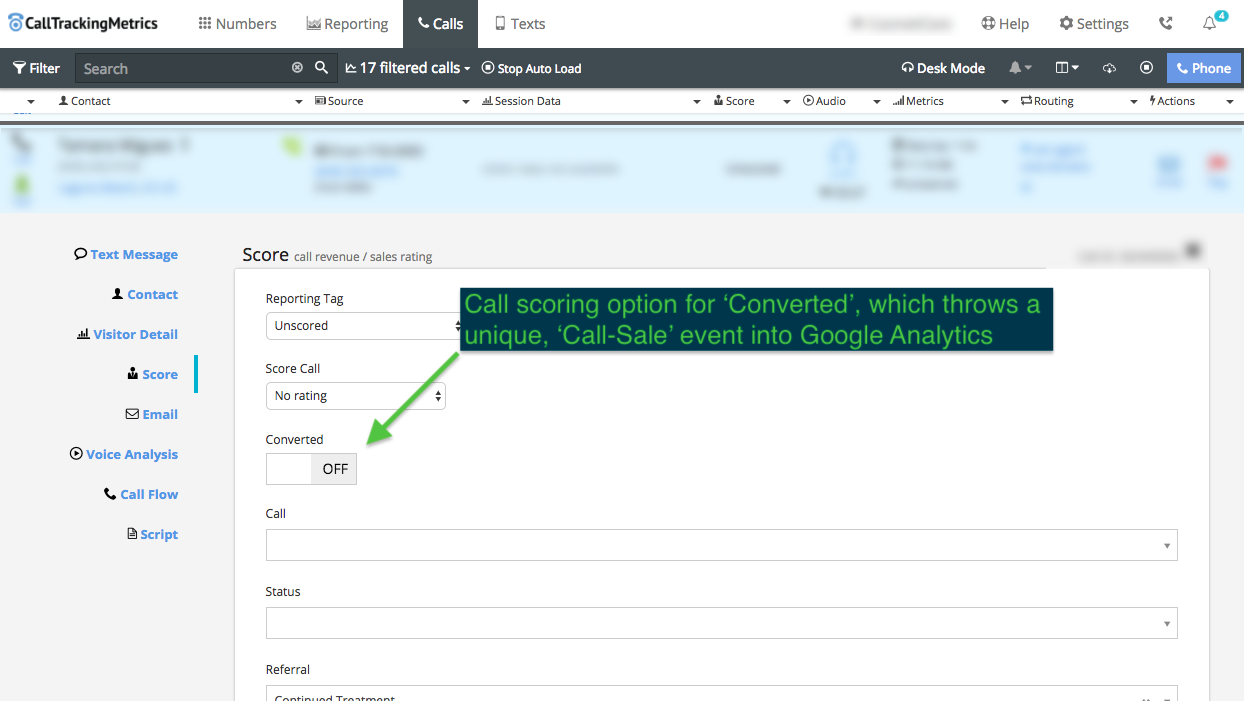Cost-per-lead measurement leaves something to be desired, doesn’t it? Getting beyond CPL is hard work that requires commitment from agency and client alike. Here’s how we did it.
This project represents (as of now) six months worth of work, through numerous interations of ‘most current, best truth’. The value is clear: Know and optimize for the cost to generate an appointment.
Define Business Goal Beyond the Lead
Our client sells a high-value professional service. The goal of digital marketing to drive calls to a call center whose goal is to book an appointment for a free consultation. So the goal beyond the lead (aka the call, or chat, or form fill), the goal is an appointment.
Step #1 was figuring out how to get ‘appointment booked’ data into an analytics platforms. We had previously used CallRail as our call tracking platform--and CallRail does offer a bunch of cool features for call scoring. But it was missing a critical piece--the ability to get those scoring values back into Google Analytics.
Enter CallTrackingMetrics. With CTM we were able to guide our client’s call center to give us a data point when a call turned into an appointment:
In Step #2 we decided to build a separate Google Analytics view to house just this one goal. Our historical Google Analytics view combined multiple goals, and although we could’ve just added this on top of those, our client has multiple teams looking to Google Analytics for information. And those teams have various degrees of GA knowledge and this made things super easy and clear to communicate.
Splitting into two views gave us an easy way to say, “Ok here’s a way we can measure and quantify all the interactions on the site...phone calls, chats, form fills--and view them by source. And here’s another way where we can just get to the final and most relevant question quickly, across all available stock reports in Google Analytics.”
Digging Deep Into ‘How to Measure?’
For some time we had been exploring how attribution modeling affected our measurement of cost per lead for this project. And measuring further down the funnel made the comparison effect even more pronounced.
Adwords often measures stronger with a ‘first click’ model. Search marketing in general typically functions to introduce people to businesses.
Differences in cost per lead were never remarkable between the attribution models, but differences in cost-per-appointment--a measurement that’s further down the funnel absolutely were.
Limitations
Attribution isn’t an exact science but in this particular project it provided us with more actionable data--and that’s really the end game of any marketing activity that’s based on analytics.
The biggest hole here--cross device blindness. Since the website does not have signed in users, we do not have a unique identifier across devices. And since we have Adwords campaign set up to target mobile and desktop individually, this attribution hole presents itself by essentially undervaluing desktop campaigns.
Summary
This has certainly been one of the more challenging analytics implementation we’ve worked on--but it’s also been one of the most rewarding both for us as the agency and for our client.
The value of being able to measure cost-per...something further down the funnel is unquestionably useful. That's how we drive value for our Adwords clients at CYS!




